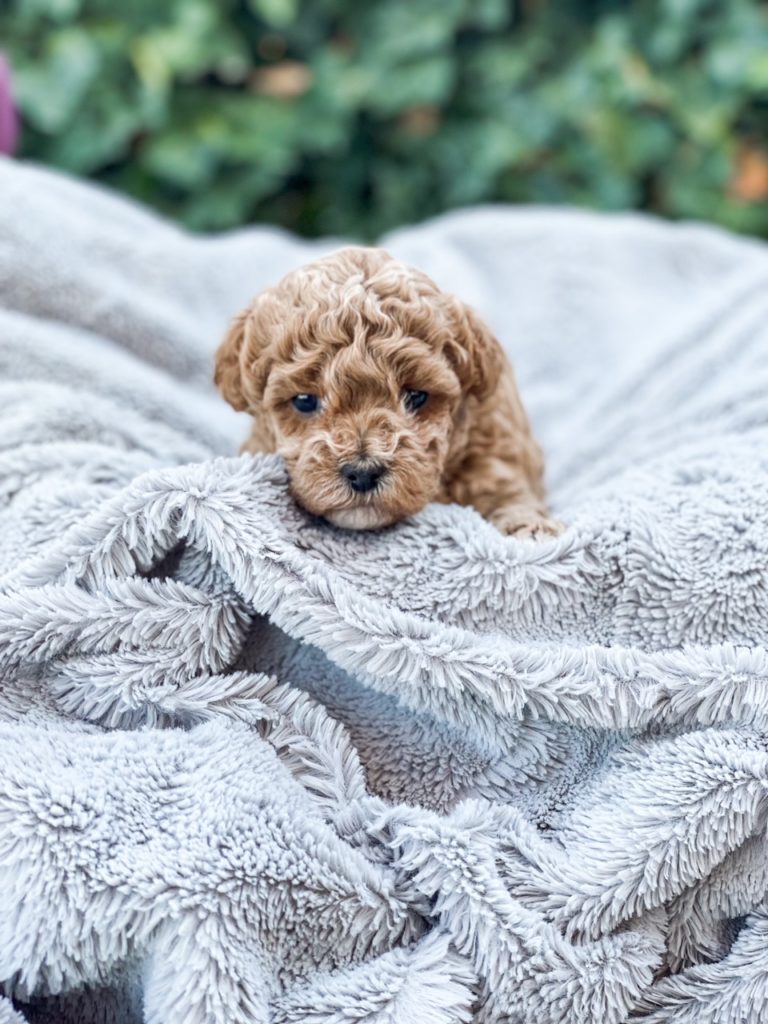Halloween’s passed and the weather just continues to get colder and colder. Winter is coming, and it’s important to know how to keep your furry friends safe. Just like you make adjustments to how you dress and go about your day, your pup needs some adjustments too in order to be able to enjoy this season to its fullest. After all, just because dogs have fur doesn’t mean that you don’t need to take winter safety precautions to keep them warm.
Here are some of our top winter safety tips for dogs. Whether your dog adores the snow or hates it or you live somewhere that doesn’t get snow at all, by practicing cold weather safety, you can head into the holidays with a happy, content pup all winter long.
Contents

Whether you live in frigid Alaska or sunny California, winters have one thing in common: lowered temperatures and worsened weather. Those puppy coats, sweaters, and booties aren’t just adorable fashion statements, but can be a necessity, especially for short-haired dogs in cold climates. You may consider keeping your dog’s coat longer than you would in the summer months, so they have a bit of extra warmth.
Your dog’s breed plays a significant role in how much you need to do to help them stay nice and warm. Some breeds adore the snow while others could not hate it more. Dogs are also individuals, so they could respond to the cold and wet differently than how you might expect. Pay attention to your dog and learn how they respond to the cold.
Watch for signs of distress, such as shivering, picking their paws up from the snow, whining, disorientation, and lethargy. Like humans, dogs can get frostbite and hypothermia, so it’s important to keep them warm. Generally speaking, if it’s too cold for you to be outside, it’s too cold for your pup.
In states that get snow and freezing temperatures, it’s quite standard for people to put salt and other ice melts on their driveways and sidewalks to keep them clear. However, these can end up giving your pup’s paws chemical burns.
Consider getting little booties for your pup to keep their paws protected on your walks. Otherwise, you want to ensure that you thoroughly wash and clean your furbaby’s paws after each outdoor excursion. You don’t just want to clean away any salt or ice melts, but also snow and ice. These can cause your pup’s paws to crack and bleed. If you notice that your pup’s paws are bleeding, you’ll want to call your vet.
A moisturizer can help keep your pup’s paws moisturized. Petroleum jelly works well for this.
Antifreeze may taste sweet, but it’s incredibly toxic to dogs. The chemicals in de-icers are too. While salt isn’t toxic, it can still lead to an upset stomach. Keep an eye on your pup during your walks and steer clear of areas with these substances.
This is also why the above point is so important. If you don’t clean your pup’s paws after bringing them back inside, they could lick off chemical de-icers or antifreeze, leading to a trip to the animal hospital. Nobody wants this! A key component for winter safety for dogs is preventing poisoning from de-icing agents and antifreeze.

Winter months tend to be drier, especially if you live in a desert area. If you live somewhere that gets cold, your home can get drier too, as the heat runs. This makes watching your pup’s hydration an essential part of winter safety. While some people assume that winter means you have to worry about their pets’ hydration less, the truth is that water bowls can freeze and you still need to ensure that your dog is drinking enough.
If you gently pinch the loose skin at the back of your dog’s neck and it doesn’t immediately spring back, they’re dehydrated. You can also check their gums: healthy, hydrated gums are a nice pink color.
You may consider using a humidifier inside your home to keep the air from getting too dry. Dry, flakey, itchy skin is a common winter problem, especially if your pup likes to go out into the cold. Ensure that you towel dry your furbaby every time they come in, and bathe them as little as possible. Bathing them too often can remove essential oils from their coat and skin that they need.
You may also need to moisturize their skin. You can talk to your vet about whether or not your dog would benefit from a fatty acid supplement to keep their coat and skin in good condition.
If you have an active pup who runs around and plays a lot, then you may need to up their caloric intake. Especially if your dog loves the snow, they may need some more food during the winter months in order to maintain a healthy weight, as well as to ensure that their body generates enough heat and energy.
However, if your dog is a couch potato and despises snow with a fiery passion, they likely ought to be fed the same as normal, or even a bit less than normal, if the winter months mean that they live a more sedentary lifestyle than they otherwise would.
Keep a careful eye on your dog’s weight to ensure that it stays in a healthy range. Talk to your vet about your dog’s specific lifestyle in order to know what you can do in order to keep them at a healthy weight throughout the winter.
These are but six of the winter safety tips you can use to help protect your dog during this time of year. Little Teton Doodles cares about helping you and your dog stay happy and healthy. If you would like to learn more winter safety tips for dogs, you can contact your vet. We would also be happy to help. Stay safe out there!